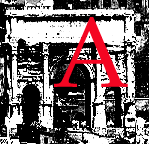Want to know how to navigate the Victorian Web? Click here.
 s Lee Erickson points out in his study of "the relations between literary forms and publishing market conditions"(6), very prosaic matters, such as the cost of paper and printing, which literary scholars usually consider beneath their notice, have had enormous effects on the kinds of literature written. For example, Erickson argues, the scarcity of paper during the period of the napoleonic and later wars contributed importantly to the popularity of poetry, since poetry required less of a scarce material than did novels or essays. "Reading poetry was clearly something of a fad in genteel society at the beginning of the nineteenth century" (23), but within several decades changing economic forces had contributed to making the essay the culturally dominant literary form. "Literary talent that is not economically insulated" — writers, that is, who have to support themselves by their writing — have to respond to "the demands of the publishing market," and in the 1820s, Erickson points out, one observes "an economic demand for discursive prose by a relatively elite audience" (11) that produces Lamb, Hazlitt, Carlyle, and Macaulay:
s Lee Erickson points out in his study of "the relations between literary forms and publishing market conditions"(6), very prosaic matters, such as the cost of paper and printing, which literary scholars usually consider beneath their notice, have had enormous effects on the kinds of literature written. For example, Erickson argues, the scarcity of paper during the period of the napoleonic and later wars contributed importantly to the popularity of poetry, since poetry required less of a scarce material than did novels or essays. "Reading poetry was clearly something of a fad in genteel society at the beginning of the nineteenth century" (23), but within several decades changing economic forces had contributed to making the essay the culturally dominant literary form. "Literary talent that is not economically insulated" — writers, that is, who have to support themselves by their writing — have to respond to "the demands of the publishing market," and in the 1820s, Erickson points out, one observes "an economic demand for discursive prose by a relatively elite audience" (11) that produces Lamb, Hazlitt, Carlyle, and Macaulay:
As the market for the form suggests, essay writers were at the center of public attention in the 1810s and 1820s in a way they never were before or have been since. While Hazlitt, Hunt, Lamb, DeQuincey, Carlyle, and Macaulay were writing, Newman, Arnold, Huxley, and Ruskin were growing up. Much of the younger generation's characteristic mode of thinking is understandable only in the context of the periodicals. [89]
Perhaps more even more interestingly, economic conditions and a related change in audience actually prompted the evolution of an essentially new genre:
Within the periodical format, the essay of Montaigne, Bacon, Addison, and Johnson evolved into a new form. What had been a modest experiment in skepticism and judgment became the dominant form of intellectual discourse. Writers became involved more closely with political and historical ephemera and so less likely to write anything that would survive longer than the three-month' celebrity of the latest review. . . . The Johnsonian essay of moral judgement was replaced by the familiar essay, which sought to please the reader. The familiar essay did not establish the author's authority but instead tried to give the reader a sense of being included within the realm of discourse. As new ideas and information were transmitted through the form to a less knolwedgeable readership, the essay acquired a didactic or condescending tone. This accomodation also required the development of slower intellectual pace characterized by repetitive amplification and lengthly quotation and by more easily accesible prose styles in which anticlimax was the rhetorical rule. [73-74]
The popularization of what had been a comparatively elite form, moreoever, had several important effects, one of which was that "reviews and magazines in stiff competition with one anther effectively segmented the reading public along existing political, religious, and class lines" (72). Second, the related expansion of the reading public produced in part by cheaper paper and printing "precipitates a crisis for literature, because the most profitable work is no longer that which appeals to the most sophisticated iterary taste" (15). According to Erickson, by mid-century cheaper, more accessible newspapers replaced the magazine as the dominant means of reaching a wide audience, thus lessening the market for magazine essays. "With the rise of the newspapers, essays in reviews and magazines lost their urgency but gained in intellectual refinement and polish as witnessed by the prose of Arnold, Newman, and Ruskin" (101).
References
Erickson, Lee. The Economy of Literary Form: English Literature and the Industrialization of Publishing, 1800-1850. Baltimore: Johns Hopkins, 1996.
Last modified December 2001